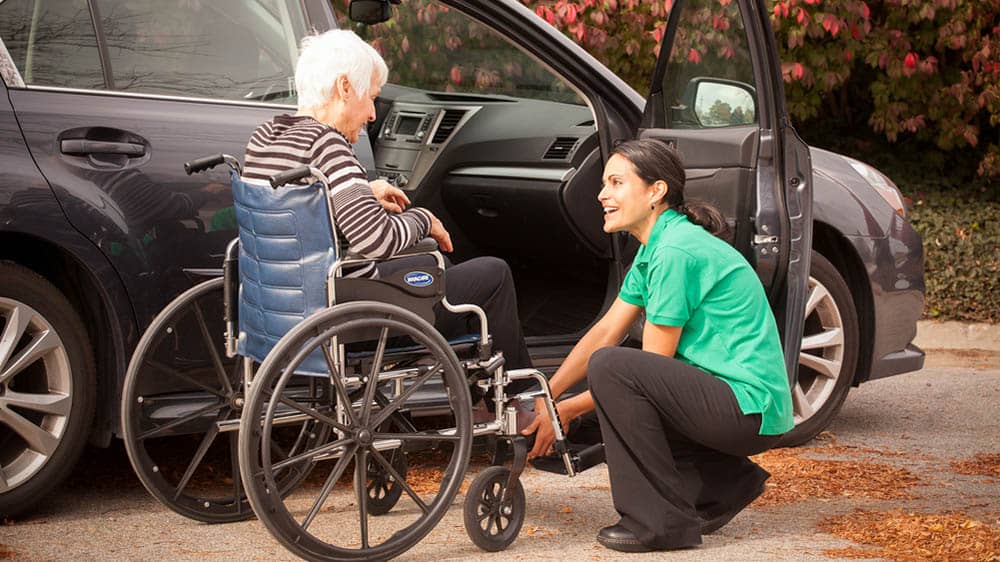

Care and Case Managers Help Ensure Care for Older Adults
When it comes to health care, no one should go it alone if they don’t have to. Whether facing a chronic health issue or medical crisis, going from hospital to home, or transitioning from independent living to assisted living, a care or case manager can be a good resource for seniors and their loved ones.
The more acute or complex one’s health needs or life transitions, the more a trained expert can help guide toward the best outcome. But knowing who to lean on for help can be confusing with all the alphabet soup letters and same-sounding titles that health care professionals carry. Learning about the different roles that providers play can give older adults and their loved ones a better chance of making informed decisions that result in matching the senior with the right expert support.
What Are the Roles of Care and Case Managers?
Defining terms and duties is especially important when it comes to understanding what care managers and case managers do. They are two similar yet distinctly separate health care professions.
Care Managers Provide Holistic Care for Those With Chronic Conditions
Care managers are nurses who provide hands-on holistic care to older adults living with ongoing health challenges such as chronic illnesses or disabilities. Their focus is on the quality of life and daily needs of clients through the lens of whole-person health care. They help coordinate and execute care plans that encompass everything from medications to physician appointments to in-home care needs to emotional, social, and spiritual dimensions. Much of care management’s focus is on preventive care by encouraging patients to proactively engage with the health care management of their conditions to decrease hospitalizations and rehospitalizations.
Care managers offer support in helping clients and family caregivers adjust to changes that come with a new diagnosis or treatment. They provide:
- Assessment and monitoring of overall health, nutrition, social interaction, family support, home safety, transportation, etc.
- Education and advocacy.
- Coaching to help family caregivers understand diagnoses and care plans.
- Coordination of the patient’s personal care.
- Connection of adult children to local resources and support.
- Guidance and support in helping seniors and their loved ones prepare for and go through a move.
- Dementia care, counseling, education, and support.
- Crisis intervention.
- Assistance to patients and loved ones in staying on top of adjustments to treatment plans and medication protocols.
Care managers usually work with clients in their homes, but they may also encounter clients in the hospital, rehabilitation centers, assisted living residences, and skilled nursing facilities.
Case Managers Serve as Team Coaches To Unite Patients, Caregivers, and Medical Teams
Case managers can come from various disciplines but are often registered nurses (RNs) who serve as team coaches in developing a plan that coordinates and integrates the support services a patient needs. Case managers typically get involved in complex, chronic medical conditions and treatments that incur heavy medical expenses. They work with patients, caregivers, and medical providers to determine the specific care a patient needs and how to most cost-effectively provide the best care possible.
Case managers deliver positive outcomes, including improvement in:
- Self-management skills.
- Care plan adherence.
- Satisfaction.
- Self-reported health status.
- Perceived quality of life.
Case managers play an advocacy and facilitation role in tying together all aspects of a patient’s medical care needs, including identifying resources and services and coordinating communication among providers, patients, and caregivers.
A case manager may also:
- Schedule a patient’s medical appointments and facilitate transportation as needed.
- Assist with transfers from one facility to another.
- Oversee the discharge process.
- Identify client needs and link clients to needed services and resources.
- Follow up with patients after discharge to ensure care coordination and service continuity.
- Follow up on test results and other procedures.
- Monitor medications.
- Arrange for specialty care.
Case managers most often work in clinical settings, such as hospitals, long-term care facilities, and outpatient, public health, and palliative care clinics. On some occasions, such as workers’ compensation cases, a case manager may be assigned to a client by an insurance company. Case managers help ensure a continuum of care for older adults who, for example, suffer a serious fall, undergo major surgery, or go through chemo treatments by coordinating the transition from the care center to home and making sure everyone involved in the senior’s care is on the same page when it comes to patient well-being. Case managers act as patient advocates by tracking patients’ day-to-day progress, reporting back to providers, and seeing that any treatment changes are implemented, always keeping patients, caregivers, and providers informed, all to help promote optimum wellness and recovery.
Care and Case Managers Work Together
Case managers and care managers often collaborate to complement rather than duplicate services. If family caregivers face the prospect of hiring a care or case manager or having one assigned for their older loved one’s care, experts suggest inquiring if they have training or certification directly related to the senior’s needs and asking for references.
Care and Case Managers: Role of Insurance
While most insurance plans will not cover the cost of a case manager to do an assessment or provide ongoing services, some long-term care insurance policies might.
Medicare offers a Chronic Care Management service to any patient with multiple chronic conditions, including diabetes, asthma, and chronic obstructive pulmonary disease (COPD). The service covers a wider array of Medicare patients than case management does. Around 70% of all enrollees are eligible for care management services.
Check with your local Area Agency on Aging to see what state-certified care management services are provided where you live.
There are also geriatric care managers with specific training in working with older adults. The nearest Area Agency on Aging should offer a directory of these professionals serving your area.
How Right at Home Can Help
Aging, disability, illness, or injury can make living at home challenging for older adults. No one should have to face complex decisions alone. Right at Home is an expert in providing care but also has the experience to help navigate every step of the aging journey. Whether you need help a few hours a few times a week or 24/7 care, contact your local Right at Home office to find out more. Many local offices have geriatric nurses on staff or can provide you with trustworthy resources to find the right nurse for your needs.
Right at Home can also provide respite care services to alleviate some of the stress family caregivers experience and provide a much-needed break. Right at Home’s FREE “Adult Caregiving Guide” is also a great resource.
Interested in receiving ongoing tips, information, and advice about caring for your aging loved one? Sign up for our monthly email newsletter.







